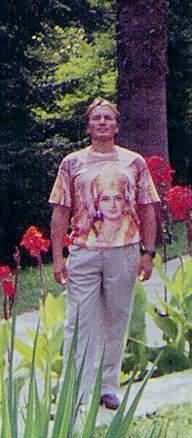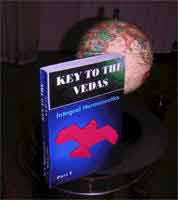HINDUISM
Karan Singh (Dr)
Hinduism, New Dawn Press, 112 pp, Rs 99.00
Hinduism is the oldest and most varied of all the great religions of the world. It has evolved out of the collective wisdom and inspiration of great seers and sages from the very dawn of Indian civilisation.
Written by a scholar of Hindu philosophy, Dr Karan Singh, the book outlines the chief facets of Hinduism as a way of life. The word ‘Hinduism’ itself is a geographical term based upon the Sanskrit name for the great river, Sindhu, that runs across the northern boundaries of India. For those living on the other side of this river, the entire region to the south-east of the Sindhu, which the Greeks called the Indus, came to be known as the land of the Hindus, and the vast spectrum of faiths that flourished here acquired the generic name, Hinduism. The author says, “Hinduism calls itself the Sanatana Dharma, the eternal faith, because it is based not upon the teachings of a single preceptor but on the collective wisdom and inspiration of great seers and sages from the very dawn of Indian civilisation.”
He further explains that the Sanskrit word for philosophy, which is darshana or ‘seeing’, implies that Hinduism is not based merely on intellectual speculation but is based upon direct and immediate perception. This distinguished Indian philosophy from much of Western philosophical thought. As we already know the oldest and most important scriptures of Hinduism are the Vedas, which contain inspired utterances of seers and sages who have attained enlightenment. The Vedas are considered eternal, because they are not merely superb poetic compositions but represent the divine truth itself as perceived through the elevated consciousness of great seers.
The author has quoted extensively from the Atharva Veda, the Rig Veda and the Upanishads to prove that Hinduism is “not a passive, world-negating religion” but is “verily a vibrant, life-affirming faith, using ‘life’ in the deeper sense of that supreme poise that transcends the dualities of life and death.” Expounding on the five basic tenets that underlie Hinduism, he says that if properly understood, the tenets provide the key to an understanding of a faith that is bewildering in its apparent diversity and complexity. The first is the concept of Brahman, the unchanging, undying reality that pervades the entire cosmos. The Vedic seers saw that everything in the universe changes, and they called the creation, samsara, that which always moves in this “effulgent universe”.
The author then explains the four purusharthas or goals of life which are dharma, artha, kama and moksha. Dharma implies a total worldview, including a scheme of right conduct under various circumstances. Artha, or wealth, has its importance provided its acquisition and utilisation are in accord with the principles of life. The concept of kama has been enunciated in the Hindu ethos and finally moksha is release from suffering, old age and ultimately from death itself meaning liberation from the wheel of samsara.
He has talked of modern renaissance and how Hinduism rose from its lowest ebb after the Mughal rule. He has talked of Sri Ramakrishna (who proved that far from being a dying religion, Hinduism was an inexhaustible fount of spiritual inspiration), Swami Vivekananda (whose contribution was in the spread of Hindu thought abroad), Mahatma Gandhi (who called for the regeneration of Hinduism and the reform of Hindu society), Sri Aurobindo (who described as the pioneer of the supramental, the ‘integral yoga’), and Sri Ramana Maharshi (who believed in spiritual quest) and their efforts at revival of Hinduism.
This book analyses the impact of Hinduism in the context of modern-day life and is very relevant to the fast-changing mores and values.




